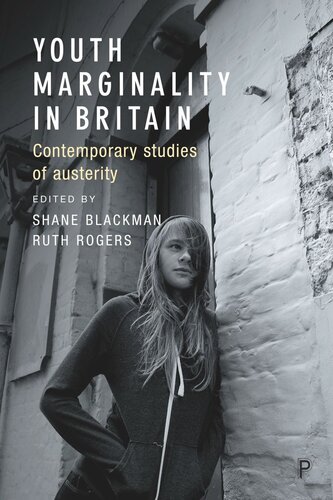

Most ebook files are in PDF format, so you can easily read them using various software such as Foxit Reader or directly on the Google Chrome browser.
Some ebook files are released by publishers in other formats such as .awz, .mobi, .epub, .fb2, etc. You may need to install specific software to read these formats on mobile/PC, such as Calibre.
Please read the tutorial at this link: https://ebookbell.com/faq
We offer FREE conversion to the popular formats you request; however, this may take some time. Therefore, right after payment, please email us, and we will try to provide the service as quickly as possible.
For some exceptional file formats or broken links (if any), please refrain from opening any disputes. Instead, email us first, and we will try to assist within a maximum of 6 hours.
EbookBell Team

4.3
98 reviewsTabloid headlines such as ‘Anti-social Feral Youth,’ ‘Vile Products of Welfare in the UK’ and ‘One in Four Adolescents is a Criminal’ have in recent years obscured understanding of what social justice means for young people and how they experience it. Youth marginality in Britain offers a new perspective by promoting young people’s voices and understanding the agency behind their actions. It explores different forms of social marginalisation within media, culture and society, focusing on how young people experience social discrimination at a personal and collective level. This collection from a wide range of expert contributors showcases contemporary research on multiple youth deprivation of personal isolation, social hardship, gender and ethnic discrimination and social stigma. With a foreword from Robert MacDonald, it explores the intersection of race, gender, class, asylum seeker status and care leavers in Britain, placing them in the broader context of austerity, poverty and inequality to highlight both change and continuity within young people’s social and cultural identities. This timely contribution to debates concerning youth austerity in Britain is suitable for students across youth studies, sociology, education, criminology, youth work and social policy.